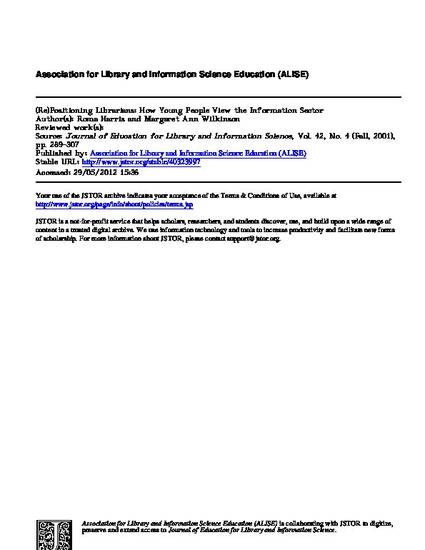
More than 2,000 students entering their first year of university studies completed questionnaires about the work roles, future employment prospects, educational requirements, status, and starting salaries of twelve occupations. Their responses were compared with U.S. and Canadian government labor-force projections. The results revealed a complex interplay of gender relations in the students' perceptions of the occupational world and their roles within it. The results also revealed an interesting positioning of the job title "librarian" relative to other fields. Unlike their assessment of the other occupations included in the study, the students considerably underestimated the level of education required to be a librarian (most did not believe that librarians require a university education). They also underestimated librarians' average starting salary and rated the occupation's social status and future prospects to be lower than the other job titles. Taken together, the results indicate that young people beginning their university studies hold views about career prospects in the information sector that are consistent with some laborforce analysts' views of occupational winners and losers. The students see status, opportunity, and success to be attainable in fields such as computer engineering and systems analysis. Unfortunately, they view the occupational present and future for librarians in a somewhat dimmer light, a worrisome result in view of labor-force data that suggest reasonably strong salary and employment opportunities for this occupation in both the United States and Canada. The implications of these findings for library and information science (LIS) education are discussed in the context of gender and identity politics.
Available at: http://works.bepress.com/ma_wilkinson/29/
